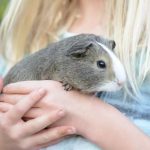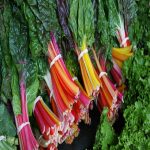Guinea Pigs
Can Guinea Pigs Eat Swiss Chard? #Nutrients #Hazards #Servings
Guinea pigs have been one of the unique options when you look at the best pets that are not traditional. They are indeed cute and provide you with a miniature version of the best pet experience ever. If you have a Guinea pig as your pet, it is quite essential to understand their eating habits. One of the most common food that you tend to feed your guinea pig is Swiss chard.
Contents
- 1 Can Guinea Pigs Eat Swiss Chard?
- 2 What Are The Nutrients Available In Swiss Chard?
- 3 Can Guinea Pig Eat Swiss Chard Stems?
- 4 Can Guinea Pigs Eat Swiss Chard Leaves?
- 5 How To Prepare Chard For Your Guinea Pigs?
- 6 Can Guinea Pigs Eat Frozen Swiss Chard?
- 7 Can Guinea Pigs Eat Cooked Swiss Chard?
- 8 Can Guinea Pigs Eat Ruby Red Chard aka Rainbow Chard?
- 9 Benefits Of Swiss Chard for Guinea Pig’s Health
- 10 How Often Can Guinea Pigs Eat Swiss Chard?
- 11 How Much Swiss Chard Should I Feed My Guinea Pig?
- 12 Interesting Facts about Guinea Pigs & Swiss Chard
- 13 Concluding Thoughts on Whether Guinea Pigs Can Eat Chard?
Can Guinea Pigs Eat Swiss Chard?
The Swiss chard is rich in nutrients and is the best food for your guinea pigs. It has the necessary vitamins and minerals necessary for the growth of your Guinea pig. However, it should be fed in moderation as it may cause diarrhea or other health complications if you exceed the limit. The fiber content in swiss chard can cause gas, diarrhea, and bloating issues in a guinea pig.
What Are The Nutrients Available In Swiss Chard?
Swiss chart has several vitamins and minerals and has been considered to be a nutritional powerhouse. Swiss chard can be the perfect choice for vitamins K, A, and C. It also provides you with the right dosage of Magnesium, potassium, iron, and dietary fiber.
The Swiss chard is also known by other names such as chard, leaf beet, and seakable beat. You can find multiple varieties of chard that include Ruby chard, Rainbow chard, Red chard, and Green chard, to name a few.
Swiss Chard has been observed to be a rich source of Vitamin A, and Vitamin K. Vitamin A ensures the proper functioning of the liver, heart, and kidney. At the same time, Vitamin K helps in a quicker recovery from injuries.
Yet another potent vitamin found in swiss chard is vitamin C which helps maintain the immune system of the body. It can also be an excellent option to take care of the vital functioning of your body and its organs.
The above table should ideally give you an insight into the best nutrition in Swiss chard and why it can be good food for your Guinea Pig.
Swiss chard and other varieties of chard have been marked by the expert vets to be one of the best food you can feed to your Guinea pigs as long as you have taken care to maintain a proper dosage and have not moved out of moderation.
Can Guinea Pig Eat Swiss Chard Stems?
Guinea pigs can eat Chard stems. It is advisable to add chard stems and chard leaves in its diet for a better health condition. Unlike most other stems, the swiss chard stems are not hard, and guinea pigs can easily chew and eat it.
Swiss Chard stems can also serve another purpose as the best Guinea pig food. They love crunchy items, and swiss chad stems can both satisfy their urge to munch on the crunchy stems and in addition, provide them with the much-needed nutrients as well. Munching on them can also benefit the proper functioning of their teeth.
Can Guinea Pigs Eat Swiss Chard Leaves?
Since Swiss Chard is full of nutrients that the Guinea pig needs, the Guinea pigs can eat the swiss chard leaves as well. Chard leaves are one of the most essential parts of the Swiss Chard, and they come with the same amount of nutrients as on the swiss chard itself.
However, it would help if you prepared your swiss chard meals for your Guinea pigs by following the proper guidance. That can be one of the excellent options you would find impressive. Let us check out how to prepare Swiss chard for a Guinea pig.

How To Prepare Chard For Your Guinea Pigs?
You can prepare Swiss Chard for your Guinea pig in several ways. It would only involve a few simple and easy steps.
One of the best options to prepare Swiss chard food for your Guinea pigs is explained here:
- Make sure you have picked the fresh chard. If you have grown swiss chard in your backyard, that can serve to be an excellent option for your Guinea pig
- Segregate the wilted chard stems or leaves.
- Wash them thoroughly. Make sure all the dirt and chemicals have been cleared off.
- Chop them into smaller pieces.
- Feed it to the Guinea pig
Mixing the swiss chard with other vegetables would be one of the excellent options as chard does have a slightly bitter taste, and your Guinea may not like it. Mixing it with other vegetables can make it difficult for the animal to leave it behind.
Ensure that you have removed any of the uneaten food. It can prove to be an invitation to the rats which may even kill your Guinea pigs.
Can Guinea Pigs Eat Frozen Swiss Chard?
The metabolism system of Guinea pigs is not designed to work with cooked food. Since frozen food is cooked before being frozen, it is not recommended to serve frozen swiss chard to guinea pigs. In essence, Guinea pigs cannot eat frozen chard.
If you are sure that swiss chard is not cooked before being frozen, it can be served to your Guinea pigs. It can be one of the right options to provide thawed chard to your Guinea pig than serving frozen food.
Frozen chard can cause health complications such as diarrhea and similar other digestive disorders. In fact, the chard served to the guinea pigs should be at room temperature.
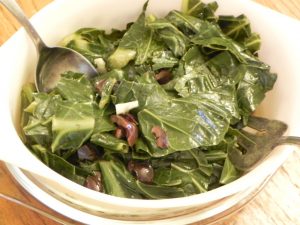
Can Guinea Pigs Eat Cooked Swiss Chard?
Guinea pigs cannot eat cooked food. The cooked food does not work well with the digestive system of a Guinea pig. The Guinea pig can only tolerate the food in its natural taste and condition. Cooked food can be unhealthy for Guinea Pigs, and this includes cooked chard as well.
Cooked chard can contain a few elements such as spices and oils, which may harm your Guinea pigs. Cooking can also result in the loss of certain important ingredients. Under standard conditions, we would recommend you should avoid all types of cooked food for your Guinea pigs. Make sure you serve only raw and fresh vegetables to your Guinea pig, and this holds good for swiss chard as well.
Can Guinea Pigs Eat Ruby Red Chard aka Rainbow Chard?
Guinea pigs can eat Ruby Chard, but only in small quantities. Ruby Chard is acidic, and large quantities can cause harm to your Guinea pig. Also called Rainbow chard, the Ruby chard can cause issues of severe nature in Guinea pigs you are not careful with quantities.
Ruby Chard is a type of chard that comes with a red rib. They can range in colour from red to yellow to white. While the Swiss Chard is bitter in taste, Ruby Chard can be even more bitter. You can feed it in the form of raw salad in most cases.
Is Ruby Red Swiss Chard Poisonous?
Ruby Chard is not poisonous as has been widely believed. The bitter taste of the Ruby Chard has given rise to a belief that the type of chard is poisonous. If you are careful with the proper use of the Ruby chard in the proportional quantity, you will find it a good food for your guinea pig.
The high acidic content of the Ruby chard can cause dialarhoea and other digestive issues in your Guinea pig. We would not recommend opting for Ruby chard in a massive quantity. It would be advisable to go with a moderate quantity which can provide a fair degree of nutrition. 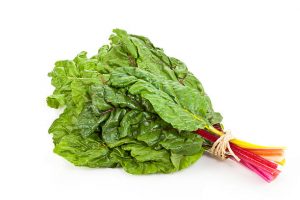
Benefits Of Swiss Chard for Guinea Pig’s Health
Swiss chard or any other type of chard comes with a host of benefits for the Guinea pigs. It can help you prevent diseases such as Scurvy, helps in a quicker recovery, and improved eyesight. The high degree of minerals and vitamins further makes it one of the excellent options.
Few of the health benefit offered by Swiss Chard for Guinea Pigs can include:
Is Chard Bad For Guinea Pigs?
As long as you feed chard to Guinea pig in moderation, it is not harmful in any way. If you exceed the amount or cross the moderate amount, it can prove to be a little risky affair. Chard fed in more quantity than needed by the body can result in situations such as urinary stones, diarrhea, and renal failure.
Chard is a leafy vegetable, and it should be a good option for your Guinea pig when fed in small quantities. The leafy vegetables provide enough fiber, vitamins, and minerals much needed for the wellbeing of your pet. The high content of Oxalic acid in the chard can prove to be a little hazardous for the better health of Guinea pigs.
Studies have indicated that the right proportions of Oxalic acid in a Guinea pig diet can be around 50 grams. That would mean you need to plan your diet so that the chard does not constitute more than that amount.
Some issues that can be caused due to the excessive use of Swiss chard in Guinea pigs can include:
In any case, chard is not bad for Guinea pigs. The only precaution you need to take care of lies in the fact that you need to feed it in moderate quantity.
How Often Can Guinea Pigs Eat Swiss Chard?
The right proportions to feed Swiss Chard to guinea pigs would be to feed it only around 3 to 4 times a week. Do note that this is the maximum feed we would recommend based on the other food items you feed your Guinea pigs. If you have already been feeding other vegetables to your Guinea pig, you can even reduce the amount to 2 to 3 times a week.
Instead of feeding Swiss Chard as a solitary food, it would be advisable to feed it in combination with other food items, especially other vegetables. Make sure that you have an excellent medical history of your pet before feeding Swiss Chard to it. If the medical history of the Guinea pig suggests bladder stones in the past, it is highly recommended NOT to feed Swiss chard as it can further complicate the condition.
How Much Swiss Chard Should I Feed My Guinea Pig?
Your Guinea pig should not have more than 50 grams of Oxalic acid. You are advised to stick to a moderate amount of swiss chard to your Guinea pig. Around one chard leaf, two to three times a week should be a good option for a healthy dose of swiss chard. Anything more than that can cause health complications like bladder stones and renal failure.
It would be advisable to mix it up with other vegetables and foods for a better degree of consumption. Make sure that the other vegetables that are coupled with Swiss chard are low in calcium.
Interesting Facts about Guinea Pigs & Swiss Chard
- Swiss Chard is an essential food item for Guinea Pigs.
- You can also feed other chard variants such as Ruby chard, Rainbow chard, Red chard, and Green chard as well in moderate quantities.
- Stick to the strict diet with one leaf two to three times a week.
- Feed chard in moderate quantity to avoid unwanted effects.
- Mix chard with other low calcium vegetables for better moderation of ingredients.
Concluding Thoughts on Whether Guinea Pigs Can Eat Chard?
Chard has been found to be rich in much-needed nutrients such as vitamin A, Vitamin C, and Vitamin K. That apart, it also provides a healthy quantity of Magnesium, phosphorus, and calcium. That would make Swiss Chard a must include food items in a Guinea pig diet. However, you need to take care not to exceed the moderate dosage to ensure that the Guinea pig does not develop further health complications.
Both overfeeding and underfeeding of chard can prove to be something we would not recommend. Stick to a regular diet of one leaf two to three times a week so that your Guinea pig can have access to the best nutrients that swiss chard offers it, but does not have the other complications caused as a result of an overdose.

-
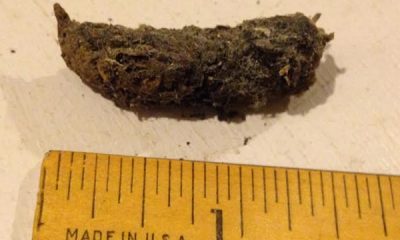
 Skunk4 years ago
Skunk4 years agoWhat Does Skunk Poop Look Like? Images & Identifications
-
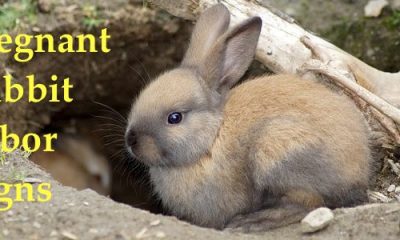
 Bunny4 years ago
Bunny4 years agoPregnant Rabbit Labor Signs #Test#Symptoms#Age#Length
-
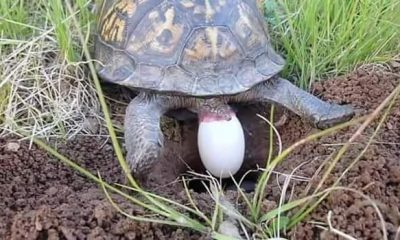
 Turtles5 years ago
Turtles5 years agoHow To Take Care of Turtle Egg At Home?
-
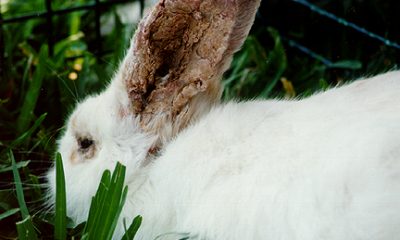
 Bunny5 years ago
Bunny5 years agoHow to Get Rid of Mites on Rabbits? #NaturalRemedies #Video
-
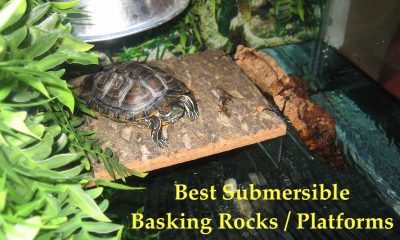
 Turtles4 years ago
Turtles4 years ago8 Basking Rocks/ Platforms for Turtles – A Perfect Guide
-

 Horse4 years ago
Horse4 years agoHow Much Weight Can a Horse Carry? #Clydesdale #Friesian #Mustang #Draft
-

 Turtles4 years ago
Turtles4 years agoHow to Take Care of Snapping Turtle Eggs? #Incubating #Hatching
-
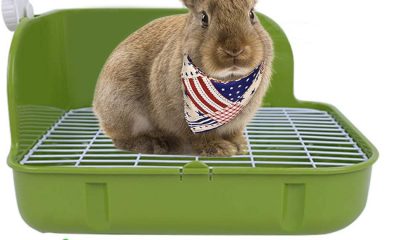
 Bunny5 years ago
Bunny5 years agoHow to Potty Train a Rabbit in House? Tips on Litter Training

